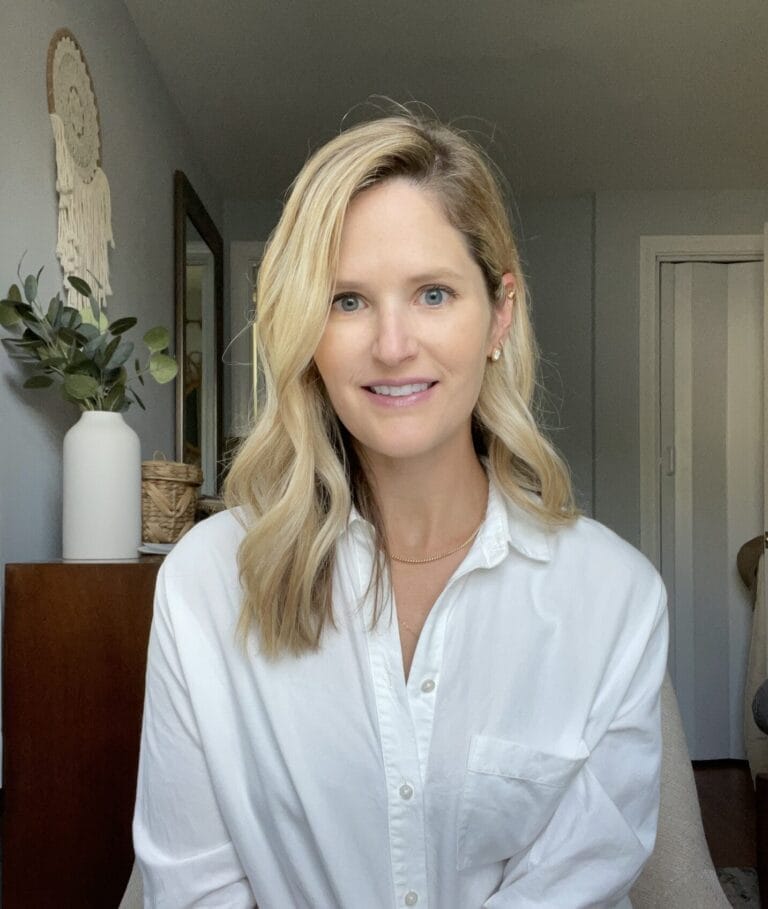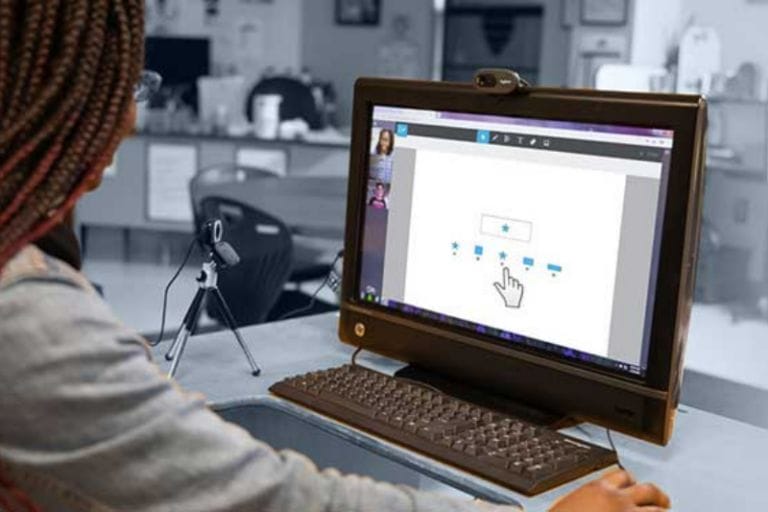

Introduction
Kaitlin H., M.A., CCC-SLP, attended the University of New Hampshire for her undergraduate degree and SUNY Buffalo for her graduate degree.
What do you enjoy about being a provider with PL?
I love being able to connect with therapists and students all over the US. I’ve been in Arkansas, Washington, Texas, Kansas, Tennessee. Currently, I work mostly in Texas and Vermont. I prefer Vermont because it’s my time zone and it follows my children’s school schedules a little better than the southern schools—which makes it easier on me right now with all my kids at home during the pandemic. Over the years I have worked so many different places thanks to cross-licensing that I’ve done while I’ve been working with PL.
Cross-licensing offers a great opportunity to open up your hours. For example, in Texas, pure evaluation opened up for me which has been super nice. It’s more flexible which has been very beneficial this year not having a ton of childcare, so it’s helpful to be able to do work after school hours. Cross-licensing can also extend the school year if you’re interested in working more weeks. For example, if you’re working in Texas, you’re working August to May. If you’re working in Vermont, you’re working September to June so it can extend you an extra month in the year. Cross-licensing has given me flexibility in my assignments, including the ability to choose populations, or ages.
How has the PL online platform enabled you to help your students and the schools you serve in new ways?
I love all the tools we have available and the material sharing. I’ve always appreciated the Library as well as the connections we can have on The Lounge. It’s super nice to have connections with all the therapists in The Lounge—you can follow different threads. You can share what you’re doing with a student and ask for any suggestions. This opens up so much opportunity and learning for us as therapists to have so many people to collaborate with whereas if you’re just at a school, you might have maybe one or two other SLPs if you’re lucky, unless you’re at a big district. I’ve really appreciated that.
And then in the user-generated library of materials, people post things they create, for example, for Valentine’s Day, and they’ll tell us to take a look at it. All the tools we have access to like the Spinner, Dice, all the Stamps, Go Fish, Memory Games, Flash Cards, things you don’t think about, and then when you have them you realize these are really useful. I can customize and tailor them to meet multiple goals in one session. It makes it a lot easier. It saves time with planning and executing great therapy sessions.
Can you tell us a little about how you collaborate with teachers and other school staff members?
I love checking in with teachers and parents about my students by phone or email. I send a letter home at the beginning of the year and always introduce myself to teachers and staff I will be working with.
How do you build trust and rapport with parents?
I build rapport by periodically checking in with them, offering suggestions for home, and letting them know they are always welcome to contact me.
What advice would you give districts considering online therapy?
Definitely provide at least one person on the ground to help with organization, students, tech, and materials. Those people have always been my saving grace during the school year.
I have worked at a lot of schools over the years. We’ve always been most successful when we’ve been given one dedicated person. At PresenceLearning, we call that dedicated person the primary support person, or PSP. They help get students to the computer, help with tech issues, print materials if you need print, talk to teachers if they’re not answering your emails.
Those are the schools that, hands-down, a) students have made the most progress and b) everyone has been the happiest because things can get done and things are not delayed. That’s always key. When districts are signing on, they need to dedicate someone to help with organization.
Also, that person is key to telling the staff at the school that “this SLP is trustworthy and wonderful and can really help you.” The PSPs help teachers to realize they can really help and that the therapist really wants to engage. They help build a case for us, and help build relationships and rapport.
What would you say to a district that has doubts about how it can work?
I would stress, first of all:
Look at your data. Look at your SLP caseloads. Are your SLPs stressed? Are they overloaded? Are the students making progress? Do they need help?
I know lots of SLPs on the ground feel threatened by us initially when we start working. So I always start off the relationship by saying, “I’m not here to take your job. I am here to support you. Anything you want to take off your plate, give to me because that’s what we’re here for. It’s about building a supportive relationship. Here’s how we can support you. Let’s share the caseload. Let’s share the work.”
And looking at the data about efficacy of teletherapy, it’s very similar to person-to-person, even with evaluations. There’s so much research to show they’re both effective.
My suggestion: Spread it out. Make smaller groups. This was one huge factor for me—I got burnt out only four years into working in the schools as an SLP. I had groups of 5 kids every 20 minutes, with multiple needs in each group because scheduling is so hard. At the end of the day, I wondered if I’d done anything for these kids or did I just waste 20 minutes of their time and they missed science class. It was exhausting.
When I moved to PL and started seeing kids 1:1 or 2:1, it made such a huge difference because I could actually see their progress and move them forward.
Are you in need of related service providers like Kaitlin? PresenceLearning is here to help! Schedule a consultation today!




